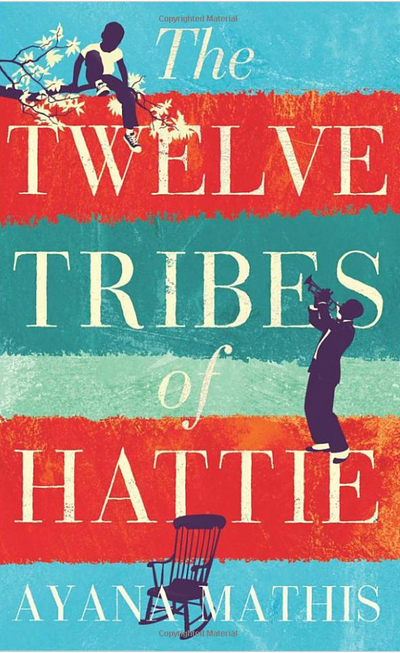You have no items in your cart. Want to get some nice things?
Go shopping
When sixteen-year-old Hattie Shepherd gets off the train in Philadelphia at the opening of Ayana Mathis’s debut, The Twelve Tribes of Hattie, she is amazed to find African Americans free to walk the pavements alongside white people, the teenagers walking and talking “the way only white girls do in the city streets of Georgia”, Hattie’s hometown. She tells her mother, “I’ll never go back. Never.”
Hattie and her mother and sisters arrive in Philadelphia as part of the Great Migration that saw over a million African Americans relocate to northern US states from the South between 1910 and 1930. The Jim Crow segregationist policies of the Southern states forced African Americans to earn their living by working the land for low wages.
Still, many of the migrants met with harsh economic conditions in the North. Mathis shows migration as less of an escape than a movement from one pot of boiling water to another. Soon married and pregnant with twins, Hattie names one of the babies Philadelphia, believing it to be a name full of “promise and of hope”. But the early death of the twins from pneumonia, curable by penicillin that is unaffordable for the poverty-stricken Hattie and her husband August, drains her of all hope.
Hattie rarely managed more than a wan smile, but she allowed Floyd and Cassie to climb into her lap, plait her hair, kiss her forehead, as though she were a living doll. They were companions, mother and children, equally vulnerable and yearning, drifting through days together.
This hopelessness is reflected in every chapter, as Hattie’s character is revealed through the stories of her nine children.
Floyd, her first son, is a horn musician, travelling through the South living hand-to-mouth, irresistibly attractive to women, but guilt-ridden by his denial of love for a bullied homosexual, Lafayette. Six, another son, burnt in a scalding bathtub in childhood, experiences fits that lead him to pulverise a scrawny, helpless classmate, and to mislead congregations into thinking he has the spiritual gift of healing.
Hattie runs away to Baltimore with the gambling-addicted father of her illegitimate child, Ruthie, but upon arrival takes the train back to her husband and children, who have had had nothing to eat that day. Her daughter Ella is given to Hattie’s sister who is significantly better off in her Georgia home with its wrap-around porch. Alice, another daughter, is suppressed by her wealthy husband, her only source of self-esteem coming from her twin brother Billups’ dependency on her. Billups, sexually abused by a teacher, is devoid of the ability to function as an adult. Franklin is a cowardly drunkard whose wife left him twice. His mental strength withers away during a stint as a soldier in Vietnam. Hattie’s daughter Bell is close to death in her flat in a Philadelphia ghetto as her TB worsens. Cassie is schizophrenic and mother to Scala who struggles to cope with Cassie’s frightening episodes.

At one point, Hattie tells a story about her cousin who was a talented swimmer:
I stood in the shallow part waiting for him to pop up and make crab claws at me, but he never did… Drowning doesn’t look how you think it would.
Mathis forces us to watch as her characters drown, painstakingly slowly — none, except her first twins, ever granted the relief of redemption or death. This drowning looks worse. It is a strangling suffocation strong enough to wrench at your lungs but loose enough to let you continue living, with difficulty.
Mathis dreams up a tremendous number of ways in which her characters might suffer and struggle, aiming to reveal through their lives what Hattie is like as a mother. But her exploration of these struggles is often limited, stopping short of the dark, dramatic possibilities and consequences of her character’s situations, as though she can’t bear to see them in more pain.
Her examples are sometimes unrealistic. Lafayette knocks the wind out of a “motorcar of a man” after he gets pushed around in a bar, yet his effeminate, vague personality makes this unbelievable. This is described in passing, rather than as the critical, revealing event it should have been. Mathis writes “Hattie is like a train coming” and that “it thrilled her to go out with a country boy she thought beneath her”, but we see little evidence of this. These contradictory generalities result in an ambivalence, and a confused idea of who Hattie is and what sort of tribe she leads.
The novel is successful perhaps, as a tale of the meaninglessness of life in survival mode, and the repercussions of a parent providing enough food to sustain lives but not enough love to foster hope. And it’s a valiant effort at writing a standout debut novel.

About Bianca Walker
Bianca is a Trinidadian-born, British citizen and a recent graduate of Kingston University London where she completed an MA in Publishing and Creative Writing. She has worked as a writer and editor in various media roles including communications, journalism, public affairs, advertising and publishing. She has recently self-published her debut novel, Life, Heavy Sigh, which is available on Amazon.





‘Mathis dreams up a tremendous number of ways in which her characters might suffer and struggle’ https://t.co/IyBxuI7V